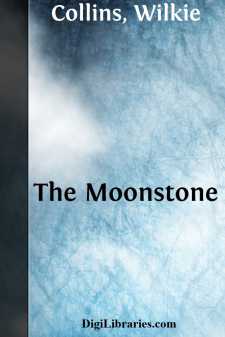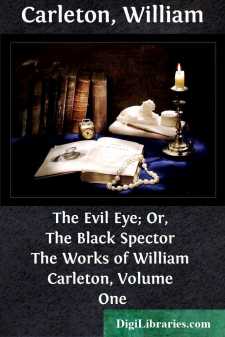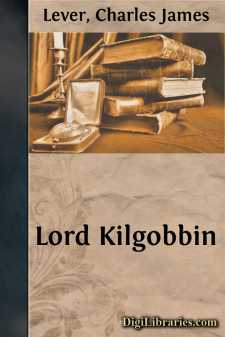Literary Collections
- American 84
- Ancient, Classical & Medieval 14
- Asian 1
- Australian & Oceanian 1
- Canadian 55
- Continental European 121
- English, Irish, Scottish, Welsh
- Essays 160
- General 24
- Letters 46
- Middle Eastern 1
English, Irish, Scottish, Welsh Books
Sort by:
by:
George Gissing
CHAPTER I Wilfrid Athel went down invalided a few days after the beginning of Trinity term. The event was not unanticipated. At Christmas it had been clear enough that he was overtaxing himself; his father remarked on the fact with anxiety, and urged moderation, his own peculiar virtue. Wilfrid, whose battle with circumstances was all before him, declined to believe that the body was anything but the...
more...
by:
Arnold Bennett
THE DOME He wakened from a charming dream, in which the hat had played a conspicuous part. 'I shouldn't mind having that hat,' he murmured. A darkness which no eye could penetrate surrounded him as he lay in bed. Absolute obscurity was essential to the repose of that singular brain, and he had perfected arrangements for supplying the deficiencies of Nature's night. He touched a...
more...
by:
Wilkie Collins
CHAPTER I In the first part of ROBINSON CRUSOE, at page one hundred and twenty-nine, you will find it thus written: "Now I saw, though too late, the Folly of beginning a Work before we count the Cost, and before we judge rightly of our own Strength to go through with it." Only yesterday, I opened my ROBINSON CRUSOE at that place. Only this morning (May twenty-first, Eighteen hundred and fifty),...
more...
by:
George Meredith
CHAPTER I. ACROSS LONDON BRIDGE A gentleman, noteworthy for a lively countenance and a waistcoat to match it, crossing London Bridge at noon on a gusty April day, was almost magically detached from his conflict with the gale by some sly strip of slipperiness, abounding in that conduit of the markets, which had more or less adroitly performed the trick upon preceding passengers, and now laid this one...
more...
by:
William Carleton
CHAPTER I. Short and Preliminary. In a certain part of Ireland, inside the borders of the county of Waterford, lived two respectable families, named Lindsay and Goodwin, the former being of Scotch descent. Their respective residences were not more than three miles distant; and the intimacy that subsisted between them was founded, for many years, upon mutual good-will and esteem, with two exceptions...
more...
CHAPTER I KILGOBBIN CASTLE Some one has said that almost all that Ireland possesses of picturesque beauty is to be found on, or in the immediate neighbourhood of, the seaboard; and if we except some brief patches of river scenery on the Nore and the Blackwater, and a part of Lough Erne, the assertion is not devoid of truth. The dreary expanse called the Bog of Allen, which occupies a tableland in the...
more...
by:
John Dryden
AMBOYNA. The tragedy of Amboyna, as it was justly termed by the English of the seventeenth century, was of itself too dreadful to be heightened by the mimic horrors of the stage. The reader may be reminded, that by three several treaties in the years 1613, 1615, and 1619, it was agreed betwixt England and Holland, that the English should enjoy one-third of the trade of the spice islands. For this...
more...
PART 1 — CAMBRIDGEI"The cow is there," said Ansell, lighting a match and holding it out over the carpet. No one spoke. He waited till the end of the match fell off. Then he said again, "She is there, the cow. There, now." "You have not proved it," said a voice. "I have proved it to myself." "I have proved to myself that she isn't," said the voice. "The...
more...
by:
George Gissing
CHAPTER I It was Mumford who saw the advertisement and made the suggestion. His wife gave him a startled look. 'But—you don't mean that it's necessary? Have we been extrav—' 'No, no! Nothing of the kind. It just occurred to me that some such arrangement might be pleasant for you. You must feel lonely, now and then, during the day, and as we have plenty of room—'...
more...
by:
George Meredith
CHAPTER I We are to make acquaintance with some serious damsels, as this English generation knows them, and at a season verging upon May. The ladies of Brookfield, Arabella, Cornelia, and Adela Pole, daughters of a flourishing City-of-London merchant, had been told of a singular thing: that in the neighbouring fir-wood a voice was to be heard by night, so wonderfully sweet and richly toned, that it...
more...











